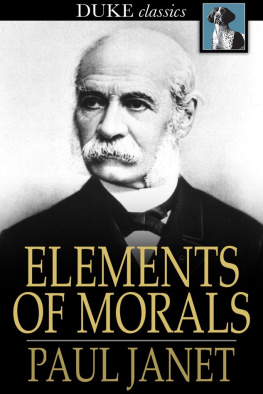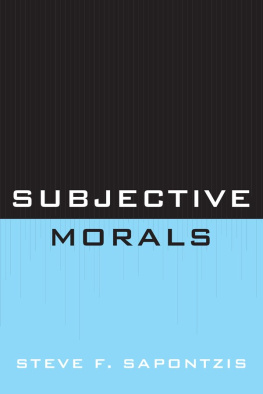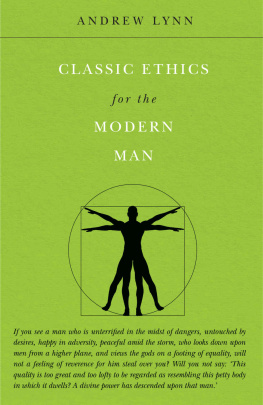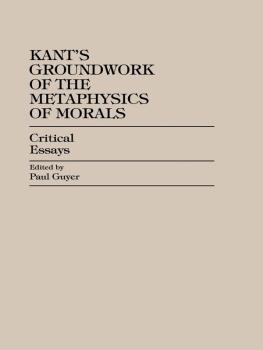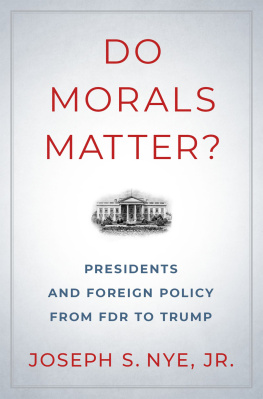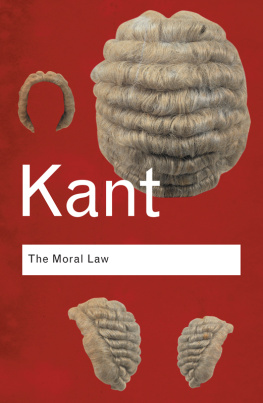ELEMENTS OF MORALS
WITH SPECIAL APPLICATION OF THE MORAL LAW TO THE DUTIES OF THE INDIVIDUAL AND OF SOCIETY AND THE STATE
* * *
PAUL JANET
Translated by
C. R. CORSON
*
Elements of Morals
With Special Application of the Moral Law to the Duties of the Individual and of Society and the State
First published in 1884
ISBN 978-1-63421-232-8
Duke Classics
2014 Duke Classics and its licensors. All rights reserved.
While every effort has been used to ensure the accuracy and reliability of the information contained in this edition, Duke Classics does not assume liability or responsibility for any errors or omissions in this book. Duke Classics does not accept responsibility for loss suffered as a result of reliance upon the accuracy or currency of information contained in this book.
Contents
*
Preface
*
The Elments de Morale, by M. Paul Janet, which we here present to theeducational world, translated from the latest edition, is, of all theworks of that distinguished moralist, the one best adapted to college andschool purposes. Its scholarly and methodical arrangement, its clear anddirect reasonings, its felicitous examples and illustrations, drawn withrare impartiality from the best ancient and modern writers, make of thisstudy of Ethics, generally so unattractive to young students, onesingularly inviting. It is a system of morals, practical rather thantheoretical, setting forth man's duties and the application thereto of themoral law. Starting with Preliminary Notions, M. Janet follows these upwith a general division of duties, establishes the general principles ofsocial and individual morality, and chapter by chapter moves from dutiesto duties, developing each in all its ramifications with unerringclearness, decision, and completeness. Never before, perhaps, was thisdifficult subject brought to the comprehension of the student with moreconvincing certainty, and, at the same time, with more vivid andimpressive illustrations.
The position of M. Paul Janet is that of the religious moralist.
"He supplies," says a writer in the British Quarterly Review, in anotice of his Theory of Morals, "the very element to which Mr. Sullygives so little place. He cannot conceive morals without religion. Statedshortly, his position is, that moral good is founded upon a natural andessential good, and that the domains of good and of duty are absolutelyequivalent. So far he would seem to follow Kant; but he differs from Kantin denying that there are indefinite duties: every duty, he holds, isdefinite as to its form; but it is either definite or indefinite as toits application. As religion is simply belief in the Divine goodness,morality must by necessity lead to religion, and is like a flowerlessplant if it fail to do so. He holds with Kant that practical faith inthe existence of God is the postulate of the moral law. The two thingsexist or fall together."
This, as to M. Janet's position as a moralist; as to his manner oftreating his subject, the writer adds:
"... it is beyond our power to set forth, with approach to success, theadmirable series of reasonings and illustrations by which his positionsare established and maintained."
M. Janet's signal merit is the clearness and decision which he gives tothe main points of his subject, keeping them ever distinctly in view, andstrengthening and supplementing them by substantial and conclusive facts,drawn from the best sources, framing, so to say, his idea in time-honoredand irrefutable truths.
The law of duty thus made clear to the comprehension of the student,cannot fail to fix his attention; and between fixing the attention andstriking root, the difference is not very great.
C. R. C.
Chapter I - Preliminary Notions
*
SUMMARY.
Starting point of morals.Notions of common sense.
Object and divisions of morals.Practical morality and theoretical morality.
Utility of morals.Morals are useful: 1, in protecting us against the sophisms which combat them; 2, in fixing principles in the mind; 3, in teaching us to reflect upon the motives of our actions; 4, in preparing us for the difficulties which may arise in practice.
Short rsum of theoretical morality.Pleasure and the good.The useful and the honest.Duty.Moral conscience and moral sentiment.Liberty.Merit and demerit.Moral responsibility.Moral sanction.
All sciences have for their starting-point certain elementary notionswhich are furnished them by the common experience of mankind. There wouldbe no arithmetic if men had not, as their wants increased, begun bycounting and calculating, and if they had not already had some ideas ofnumbers, unity, fractions, etc.; neither would there be any geometry ifthey had not also had ideas of the round, the square, the straight line.The same is true of morals. They presuppose a certain number of notionsexisting among all men, at least to some degree. Good and evil, duty andobligation, conscience, liberty and responsibility, virtue and vice,merit and demerit, sanction, punishment and reward, are notions which thephilosopher has not invented, but which he has borrowed from common sense,to return them again cleared and deepened.
Let us begin, then, by rapidly enumerating the elementary and commonnotions, the analysis and elucidation of which is the object of moralscience, and explain the terms employed to express them.
1. Starting point of morals: common notions.All men distinguish thegood and the bad, good actions and bad actions. For instance, tolove one's parents, respect other people's property, to keep one's word,etc., is right; to harm those who have done us no harm, to deceive andlie, to be ungrateful towards our benefactors, and unfaithful to ourfriends, etc., is wrong.
To do right is obligatory on every onethat is, it should be done;wrong, on the contrary, should be avoided. Duty is that law by whichwe are held to do the right and avoid the wrong. It is also called themoral law. This law, like all laws, commands, forbids, andpermits.
He who acts and is capable of doing the right and the wrong, and whoconsequently is held to obey the moral law, is called a moral agent. Inorder that an agent may be held to obey a law, he must know it andunderstand it. In morals, as in legislation, no one is supposed to beignorant of the law. There is, then, in every man a certain knowledge ofthe law, that is to say, a natural discernment of the right and the wrong.This discernment is what is called conscience, or sometimes the moralsense.
Conscience is an act of the mind, a judgment. But it is not only themind that is made aware of the right and the wrong: it is the heart. Goodand evil, done either by others or by ourselves, awaken in us emotions,affections of diverse nature. These emotions or affections are whatcollectively constitute the moral sentiment.
It does not suffice that a man know and distinguish the good and the evil,and experience for the one and for the other different sentiments; it isalso necessary, in order to be a moral agent, that he be capable ofchoosing

